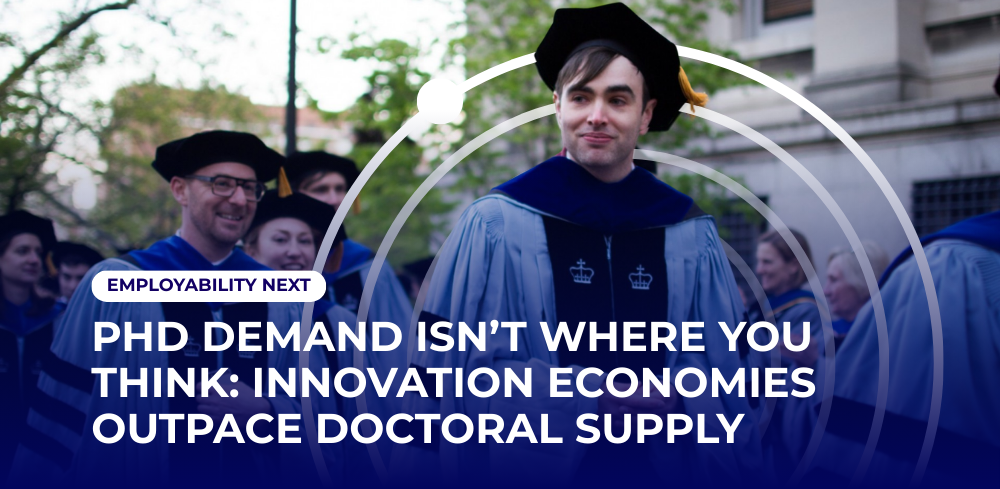Will AI help revalorize human skills?

After the initial waves of panic that swept across the globe when artificial intelligence tools became accessible to the general public—almost foretelling the demise of humanity or, at the very least, the end of the world as we know it—it was high time to regain composure. At the forefront stood Higher Education, suddenly feeling the weight of its age and the pressing need to adapt its teachings. However, navigating through the tumultuous sea of change proved challenging, given the pervasive anxiety that permeated the atmosphere.
One of the primary recommendations from experts was to "integrate AI into courses." In our annual survey for the Global University Employability Ranking & Survey, we submitted this question to employers in as many as 21 countries. The survey results revealed that 77% of them acknowledged that "rapid AI technology progress has created new skill requirements for graduates entering the workplace." Almost in tandem, 75%believed that "Universities should introduce digital literacy courses in all curriculums."
77% of employers acknowledge that rapid AI technology progress has created new skill requirements for graduates entering the workplace.
Would the cultivation of digital literacy, then, be a direct response to the recommendation of integrating AI into courses and thus form these "new skills requirements"? The connection seems immediate.
Yet, when we delve deeper into the survey, examining the data with a finer granularity and cross-referencing responses based on professional profiles in fields where AI is both a challenge and an opportunity — spanning from technological sectors to marketing — a more exciting reality begins to unfold. Indeed, these profiles exhibit expectations well above the average concerning soft skills, particularly interpersonal skills, and a diverse array of capabilities. From the ability to collaborate in a team to acknowledge relevant information, articulating problems, translating knowledge into different contexts, coping with uncertainty, and understanding biases, the human element is thrust back into the spotlight.
Could this herald a return to disciplines that foster critical thinking, such as the arts and humanities,which have been somewhat neglected in recent times? We may not be there just yet. However, these areas could serve as crucial levers for universities in general to devise solutions and adapt their teachings. At present, professionals are confident that the key to success lies in both mastering digital tools and understanding them as tools rather than ends in themselves.
However, a significant challenge looms for higher education. Universities urgently need to reassess their employability strategies in light of these changes and should bring together corporate expertise and faculty to play a more prominent role in imparting"non-technical skills" to students. An essential element in this equation is funding because new methods and stakeholders will need to enrich academic paths.
We acknowledge that technology is reshaping the future of work, and AI promises further disruptions ahead. The good news, however, is that there are practical and tangible measures that universities can take to equip their students with what they need to succeed—human skills and judgment that will complement technology.
















